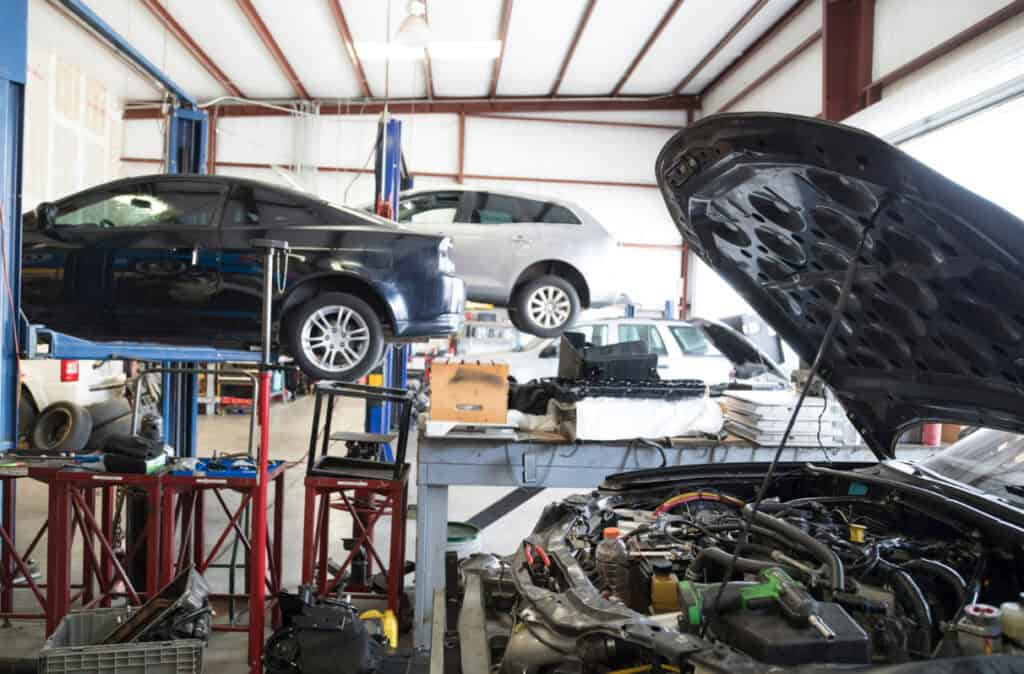In today’s rapidly evolving business landscape, sustainability is no longer just an optional consideration; it has become a crucial aspect of operations for businesses of all sizes and industries.
Table of Contents
Historically, garage businesses have lagged in adopting sustainable practices, often due to a lack of awareness or perceived complexities in implementing eco-friendly solutions.
This lack of sustainable accountability has resulted in significant environmental impacts, including hazardous waste disposal, excessive energy consumption, and reliance on non-renewable resources.

However, the urgency to address these issues has never been greater. With increasing regulatory pressures and growing consumer demand for environmentally responsible services, garages must prioritize sustainability to remain competitive.
Embracing sustainable practices can enhance a company’s reputation, reduce operational costs, and contribute positively to the environment. For garage businesses, sustainability is particularly important due to the nature of their operations, which often involve handling hazardous materials and energy-intensive processes.
In this article, we will explore various sustainability issues that garage businesses face and provide practical tips for making your garage operations more eco-friendly.

Managing Oils
One of the primary sustainability challenges for garage businesses is the management of used motor oils. Improper disposal of used oils can have severe environmental consequences, including soil and water contamination, which can harm wildlife and ecosystems.
To mitigate these risks, garages should adopt eco-friendly methods for disposing of used oils. The best practice for managing used oils is to partner with a certified waste oil collection service.
These services specialize in safely collecting, transporting, and recycling used oils, ensuring that they do not end up polluting the environment. By opting for a green service for oil collection, garages can not only ensure compliance with environmental regulations but also demonstrate their commitment to sustainability.
Additionally, recycling used oils can lead to the production of re-refined oils, which can be reused in various applications, reducing the demand for virgin oil production.
Energy Waste
Garages often face significant challenges related to energy waste. Unlike typical business buildings, garages may lack proper insulation, leading to higher energy consumption for heating and cooling.
To address this issue, garages should invest in preventative maintenance for their buildings, such as sealing gaps, insulating walls and roofs, and upgrading windows and doors to energy-efficient models.
Implementing energy-efficient solutions in a garage can have multiple benefits. For one, it can significantly reduce energy costs, leading to long-term savings.
Additionally, a well-insulated and energy-efficient building provides a more comfortable working environment for employees, which can enhance productivity and well-being.
Moreover, energy-efficient lighting and HVAC systems can improve the overall performance and longevity of vehicles serviced in the garage by maintaining optimal working conditions.
Car Part Imports
The importation of car parts is another area where garages can enhance sustainability. Traditional import practices often involve long transportation routes, resulting in high carbon emissions. To reduce the environmental impact, garages should seek out sustainable import solutions.
One approach is to source parts from local or regional suppliers whenever possible. This reduces transportation distances and associated emissions.
Additionally, garages can collaborate with suppliers who prioritize eco-friendly practices, such as using sustainable packaging materials and optimizing logistics to minimize carbon footprints.
By adopting these strategies, garages can not only reduce their environmental impact but also support local economies and build stronger relationships with suppliers committed to sustainability.
Dust and Grime Management
Garages are notorious for accumulating dust, oil spills, and other particles, which can negatively affect air quality and the performance of equipment. Effective dust and grime management is essential for maintaining a clean and healthy working environment.
Engaging professional cleaning services to regularly clean the garage can significantly reduce the buildup of harmful particles. These services have the expertise and equipment needed to remove fine dust and contaminants from the air, preventing them from clogging HVAC filters and damaging electronic devices.
This not only extends the lifespan of equipment but also improves indoor air quality, creating a safer environment for employees and customers. By investing in professional cleaning, garages can enhance their sustainability efforts.
Clean workspaces reduce the need for frequent repairs and replacements of equipment, leading to cost savings and a lower environmental footprint. Furthermore, maintaining clean air quality aligns with broader health and safety standards, showcasing the garage’s commitment to the well-being of its stakeholders.

Making Your Garage Business More Sustainable Is Worth It!
Sustainability in garage businesses is multifaceted, encompassing the management of hazardous materials, energy efficiency, sustainable sourcing, and cleanliness.
By addressing these areas, garages can significantly reduce their environmental impact, improve operational efficiency, and foster a positive reputation among customers and the community.
Implementing sustainable practices not only benefits the environment but also offers tangible advantages for the business, including cost savings, compliance with regulations, and enhanced employee satisfaction.
Clearly, embracing sustainability and making your garage business more sustainable is a win-win strategy that can drive long-term success for your company.



